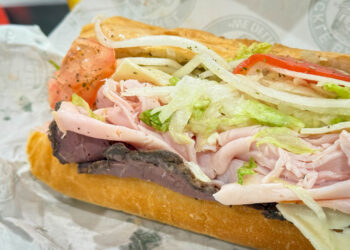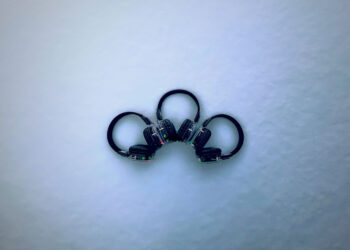
By Scott Mechura EBS Food Columnist
As a chef, I have many tools. Countless, really.
Among them are more knives than I can count. Some I purchased in places like Spain and France. A couple were gifts from Italy and Japan.
I have hooks and books, tongs and tweezers, wooden spoons from a chopstick shop in Manhattan, New York, mother of pearl spoons for dishing caviar, thermometers and even a refractometer.
These tools fill a cabinet the size of any you’d find in a mechanic’s garage. The joke is usually that if you need it, I have it. And I have it handy.
But one tool is my most valuable, one tool that I could not work without.
My hands.
You’re probably thinking that we all require our hands for everyday life, so what makes them such a special tool? Why not your palate, for example? After all, a chef’s palate is often what distinguishes him or her from a non-culinarian. True, but so do his hands.
Grant Achatz, a Chicago chef, pressed on in his restaurant through a bout with tongue cancer some years back. Through treatment, he worked side by side with his right-hand man because he had such faith and trust in his palate.
But what if he was not able to use his hands?
Grip. We need a strong grip to hold heavy sauté pans in one hand for hours on end, tossing its contents just right, while simultaneously requiring dexterity in the other hand for maneuvering tongs or flipping a fish with a spatula.
We have to be able to wield knives of all weights and shapes, each one requiring a different variation of strength and finesse.
Touch. A seasoned cook or chef can determine the doneness of a multitude of cooked meats. And they can do it in under a second.
We can feel the softness and texture of any number of fruits and vegetables and know if it should be eaten today, or if it would benefit from one more day of ripening.
The snap of an asparagus tells us if it is fresh, and where it should be cut for optimal flavor and texture.
Through touch, we know when that pasta dough is just right for rolling.
Planning. A large part of a chef’s job is organization, planning and ensuring efficiency. If he or she can’t write a clear inventory, schedule, prep list or outline, it can cause confusion for the whole team.
Portioning. Consistency is the cornerstone of success in a restaurant. A chef should be able to run through an entire rib eye and cut every steak to perfect weight.
Eventually, you can pour salt or spice in your hand and know it is almost certainly 3 tablespoons.
Thermometer. An experienced cook can tell the temperature of most anything, food or otherwise, simply by feel. I’ve worked with a pastry chef who knew by touch when her tempered chocolate was ready. She wanted it at 88 degrees. When she walked away, I used my thermometer. It was 89 degrees.
Plating. In some cases, we plate large portions of foods that require a lot of strength and endurance, while other dishes and ingredients ask for precision, detail and the touch of a butterfly with sore feet.
Watch a skilled cook move rapidly down a plating line for a large party and quickly place each item in precisely the same place on each dish.
Those boots may be for walking, but a chef’s hands were made for cooking.
Scott Mechura has spent a life in the hospitality industry. He is a former certified beer judge and currently the Executive Chef at Buck’s T-4 Lodge in Big Sky.













